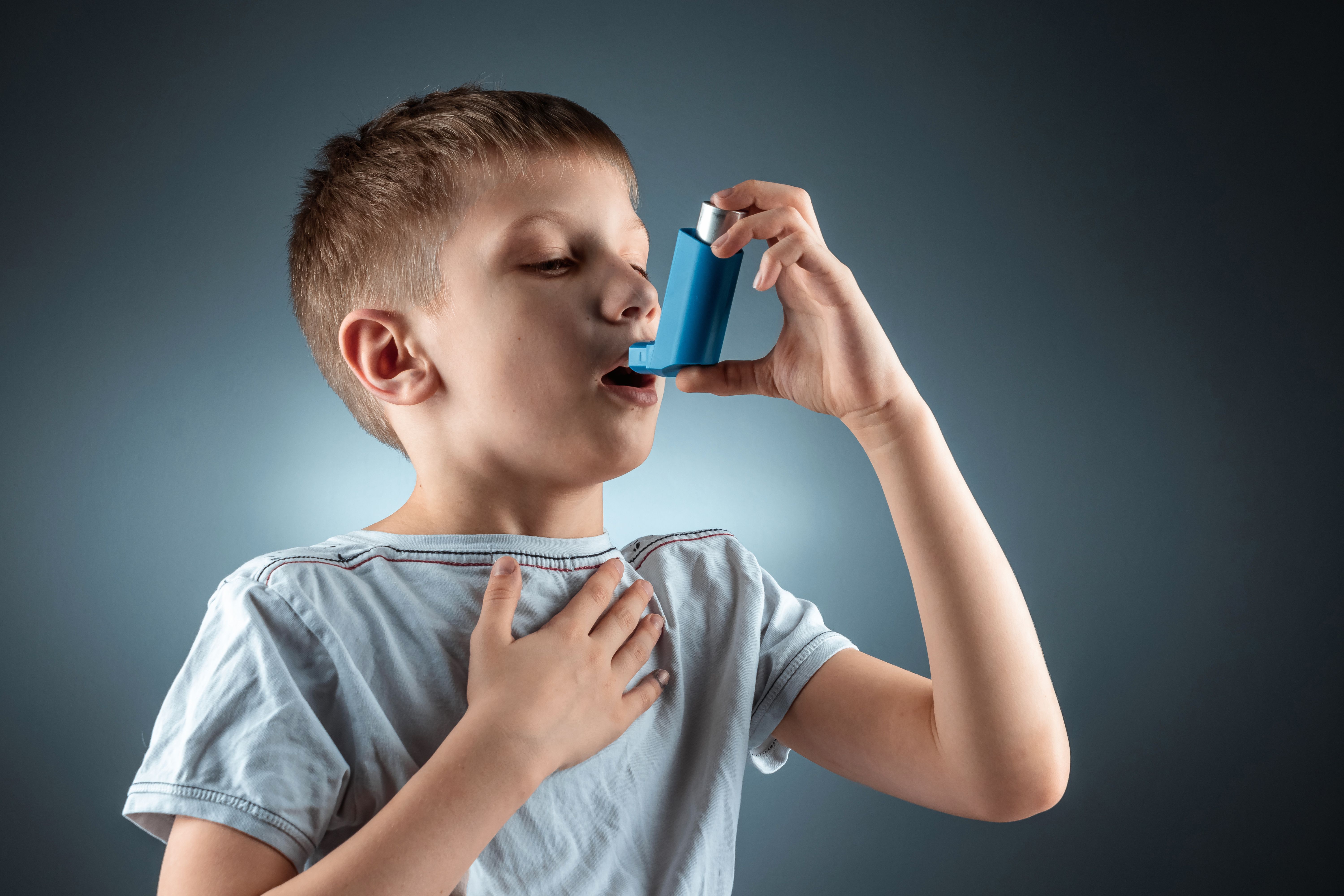Gastrointestinal microbiome: A new biomarker for asthma control in children
An investigation utilizing machine learning (Recursive Ensemble Feature Selection, REFS) identifies potential biomarkers for asthma control in pediatric patients.
Child using inhaler | Image Credit: © Aliaksandr Marko - © Aliaksandr Marko - stock.adobe.com.

A potential link between asthma control and the gastrointestinal microbiome was observed in a study suggesting a new useful biomarker for identifying children with uncontrolled asthma. With machine learning, findings identified microorganisms that could differentiate children with controlled and uncontrolled asthma: haemophilus and veillonella.
Global diversity and conventional differential abundance analysis (DAA) did not exhibit significant differences between the groups of pediatric patients with asthma. However, machine learning (Recursive Ensemble Feature Selection, REFS) detected a set of taxa, including haemophilus and veillonella, which were able to differentiate between uncontrolled and controlled asthma with an average classification accuracy of 81% (saliva) and 86% (feces).
According to the study, these taxa were enriched in taxa previously associated with inflammatory diseases for both sampling compartments, and with chronic obstructive pulmonary disease (COPD) for the saliva samples.
Microbiome Biomarkers and Machine Learning
This research presents opportunities for for further investigation into machine learning and the differentiation of controlled and uncontrolled children with asthma based on their gastrointestinal microbiome. With the potential of a new biomarker for treatment responsiveness, investigators wrote that these data could help to improve asthma control in children.
As a chronic respiratory disease that affects millions of people worldwide, uncontrolled asthma can lead to severe exacerbations and reduced quality of life. Previous research has linked the microbiome with asthma characteristics, but this investigation specifically targeted the association with asthma control, which had not been explored until now, according to the study.
A team of investigators led by Jelle Blankestijn, PhD candidate, Department of Pulmonary Medicine, Amsterdam UMC, University of Amsterdam, conducted the analysis on data collected from 143 children with moderate-to-severe asthma aged 6-17 years. A total of 246 fecal and saliva samples were obtained as part of the SysPharmPediA study.
Comparing Asthma Control
Patients were classified with either controlled or uncontrolled asthma based on their asthma symptoms, and their microbiome at the species level was compared using global diversity, conventional differential abundance analysis, and machine learning (Recursive Ensemble Feature Selection, REFS).
The study has several limitations, including its small sample size and that the study only focused on children with moderate-to-severe asthma. Investigators stated the need for further research to confirm these findings in larger and more diverse populations.
However, the importance of the data was acknowledged, as it illuminated the
possibilities for identifying biomarkers provided by machine learning, specifically in complex diseases like asthma and can inform future research.
Reference
Blankestijn, JM, Lopez-Rincon, A, Neerincx, AH, et al. Classifying asthma control using salivary and fecal bacterial microbiome in children with moderate-to-severe asthma. Pediatr Allergy Immunol. 2023; 34:e13919. doi:10.1111/pai.13919
This article was initially published on our sister publication HCP Live.
Infants exclusively fed breast milk at birth less likely to develop asthma
September 28th 2024Infants were 22% less likely to develop asthma in early childhood if there were only fed breast milk during birth hospitalization, per a study presented at the 2024 AAP National Conference & Exhibition.
Having "the talk" with teen patients
June 17th 2022A visit with a pediatric clinician is an ideal time to ensure that a teenager knows the correct information, has the opportunity to make certain contraceptive choices, and instill the knowledge that the pediatric office is a safe place to come for help.
Meet the Board: Vivian P. Hernandez-Trujillo, MD, FAAP, FAAAAI, FACAAI
May 20th 2022Contemporary Pediatrics sat down with one of our newest editorial advisory board members: Vivian P. Hernandez-Trujillo, MD, FAAP, FAAAAI, FACAAI to discuss what led to her career in medicine and what she thinks the future holds for pediatrics.
Boy presents with fatigue, minimal responsivity, and diffuse muscle weakness
August 7th 2024An 11-year-old boy with a history of asthma and allergic rhinitis presented to the emergency department (ED) with worsening fatigue, minimal responsivity to external stimuli, and diffuse muscle weakness for 2 months.